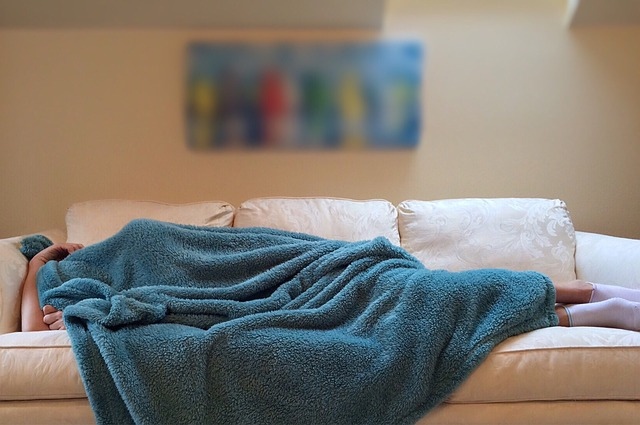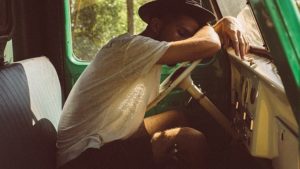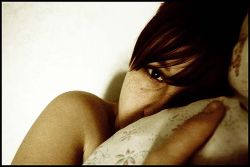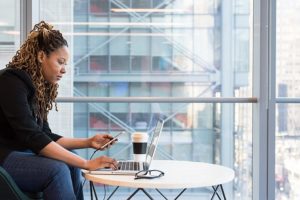Do you have sleep problems? You are not alone.
Like you, more and more Americans are getting sleepless. Between 50 million and 70 million of US adults (about a third of the entire population) have sleep disorders. While seemingly harmless at first, sleep deprivation, if it becomes a habit, leads to suffered health issues and problems at work. No wonder Centers for Disease Control and Prevention (CDC) has recently raised the red flag by declaring insufficient sleep as a full-fledged public health enemy.

Sleep-deprived people at some points in their lives, experience health issues which may include diabetes, depression, hypertension, obesity, some types of cancer, and reduced mental capacity and productivity. All in all, their quality of life goes down.
Signs of sleep deprivation
The tricky thing is there is no one-size-fits-all ideal length of sleep for every person. Scientists have just found out the eight-hour ideal sleep hour is a myth. Some person might need more while others are fine with a few shuteye hours. Here are some signs if you are sleep deprived:
- You feel sleepy in the day. If you have enough sleep, you should be alert and active during the day. Your body’s desire to dive in your bed is an indication that you need more sleep.
- You fall asleep at once. The National Institute of Neurological Disorders and Stroke reported that you might have severe sleep deprivation or even a sleep deprivation if you fall asleep routinely within five minutes lying down.
- You use clichés and are slurred speech. Sleep loss impacts the frontal lobe of our brain which is associated with constructive thinking in speech and creativity. Sleep-deprived people have difficulty delivering a spontaneous complicated speech that can lead to more slurring, stuttering, and monotone speech.
- You become hungrier. Sleep loss affects the production of two key hormones responsible for appetite – leptin and ghrelin. Leptin tells our body to stop eating while ghrelin prompts it to start ingesting food. If we do not get enough sleep, production of leptin drops and ghrelin increases. This phenomenon explains the close relationship between obesity and sleep deprivation.
- You are zoning out more frequently. Your attention and presence of mind are also diminished if you get less sleep. If you are spacing out while driving or any other activity, you may need to take a nap to avoid accidents.
- You become more impulsive. If you sleep less, you are prone to poorer judgment and impulsive actions such as in binge eating, thoughtless buying and driving too fast without considering their consequences.
- You are getting clumsier. Lack of sleep leads to issues with your motor skills such as having wobbly feet and stumbling when carrying things.
- You forget more. Sleep loss impairs the brain’s memory consolidation and emotional processing that can make rational and thoughtful actions more challenging.
- Your focus and concentration suffer. Your inability to concentrate is a definite sign you’re not spending enough shuteye time. Insufficient sleep also reduces your decision-making ability.
- You become more involved in a fight with your partner. A 2013 study showed that couples that do not have enough shuteye have more frequent and severe quarrels. The researchers concluded that lack of sleep lowers your capacity to avoid and handle conflict.
Apps: latest sleep technology
With the growing number of people with sleep troubles, we need to use the latest technology available to address the increasing sleep problems. Thanks to app developers who responded to the need of getting enough sleep. Using the latest audio technology such as binaural beats, hypnosis, neurolinguistic programming (NLP), and psychoacoustics these apps emit sounds that quiet your mind and put you to sleep. Here are seven free apps downloadable on both Android and iOS that can help you sleep better:
- Lucid Dreamer – Dreaming is an essential part of deep sleep. Lucid Dreamer helps you to achieve the state of lucid dreaming by triggering an audio and visual cue on screen.
- Deep Sleep and Relax Hypnosis – This app allows you to experience custom-made hypnosis sessions for sleep and relaxation.
- Pzizz – The app’s patented algorithm that uses psychoacoustics lets you get a mix of music, sound effects, and voiceover to quiet your mind, make and keep you asleep, and then wake you up refreshed.
- Relax Melodies – This app allows you to choose sounds and melodies and then combine them to put you to sleep. You can also change the mix of drowsy tunes anytime.
- Sleep Genius – This app boasts itself as the most scientifically designed to get asleep today. It is backed by decades of research to create algorithms that signal your brain to sleep faster, deeper, and longer.
Article created by Ethan Wright, writer and researcher for www.BeddingStock.com



Leave a Reply